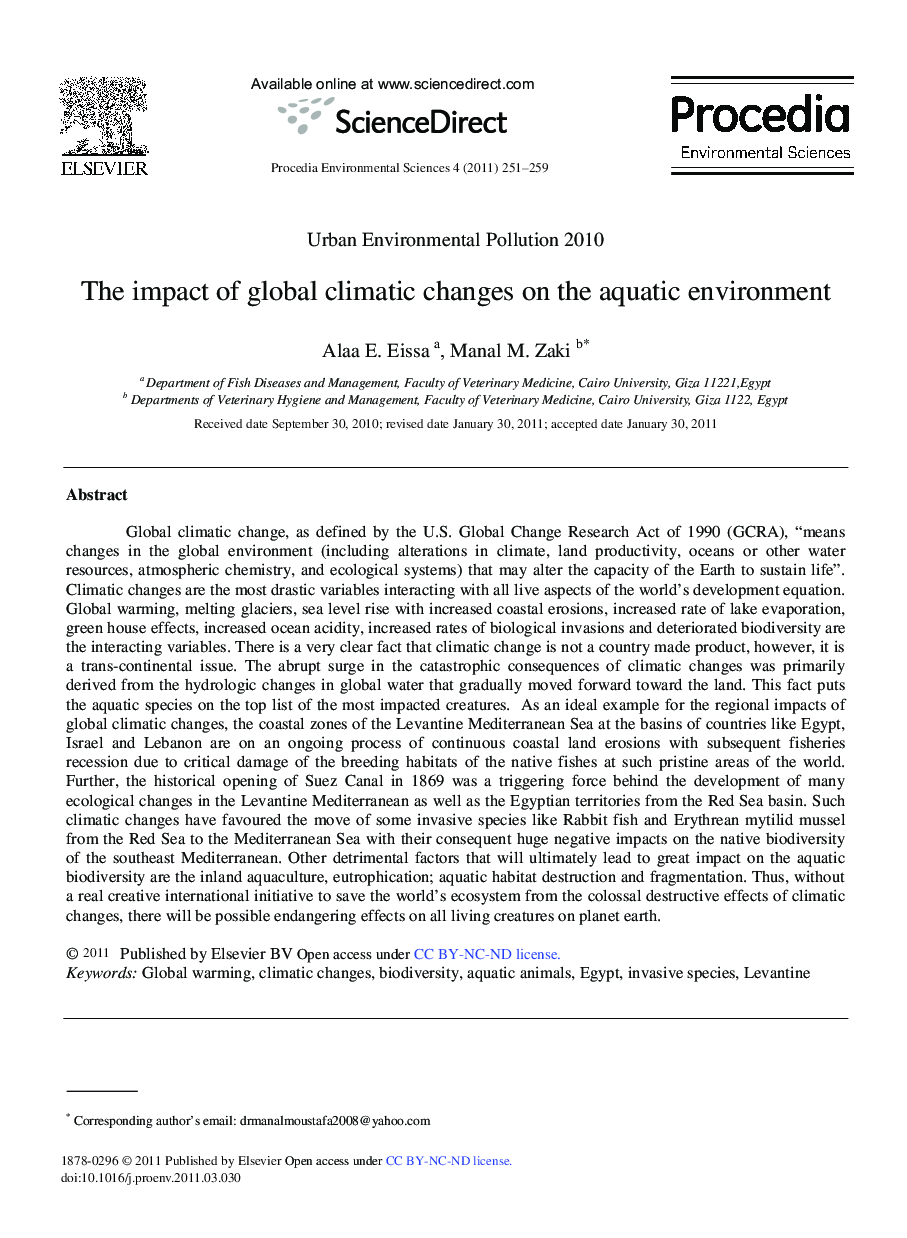| کد مقاله | کد نشریه | سال انتشار | مقاله انگلیسی | نسخه تمام متن |
|---|---|---|---|---|
| 4403961 | 1618638 | 2011 | 9 صفحه PDF | دانلود رایگان |

Global climatic change, as defined by the U.S. Global Change Research Act of 1990 (GCRA), “means changes in the global environment (including alterations in climate, land productivity, oceans or other water resources, atmospheric chemistry, and ecological systems) that may alter the capacity of the Earth to sustain life”. Climatic changes are the most drastic variables interacting with all live aspects of the world's development equation. Global warming, melting glaciers, sea level rise with increased coastal erosions, increased rate of lake evaporation, green house effects, increased ocean acidity, increased rates of biological invasions and deteriorated biodiversity are the interacting variables. There is a very clear fact that climatic change is not a country made product, however, it is a trans-continental issue. The abrupt surge in the catastrophic consequences of climatic changes was primarily derived from the hydrologic changes in global water that gradually moved forward toward the land. This fact puts the aquatic species on the top list of the most impacted creatures. As an ideal example for the regional impacts of global climatic changes, the coastal zones of the Levantine Mediterranean Sea at the basins of countries like Egypt, Israel and Lebanon are on an ongoing process of continuous coastal land erosions with subsequent fisheries recession due to critical damage of the breeding habitats of the native fishes at such pristine areas of the world. Further, the historical opening of Suez Canal in 1869 was a triggering force behind the development of many ecological changes in the Levantine Mediterranean as well as the Egyptian territories from the Red Sea basin. Such climatic changes have favoured the move of some invasive species like Rabbit fish and Erythrean mytilid mussel from the Red Sea to the Mediterranean Sea with their consequent huge negative impacts on the native biodiversity of the southeast Mediterranean. Other detrimental factors that will ultimately lead to great impact on the aquatic biodiversity are the inland aquaculture, eutrophication; aquatic habitat destruction and fragmentation. Thus, without a real creative international initiative to save the world's ecosystem from the colossal destructive effects of climatic changes, there will be possible endangering effects on all living creatures on planet earth.
Journal: Procedia Environmental Sciences - Volume 4, 2011, Pages 251-259